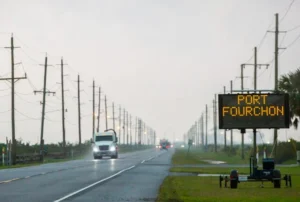(Sept. 4) Legal cases can involve dizzying complications. Regarding a New Orleans case involving millions of dollars for public benefit, however, let’s cut through reams of court filings and simplify the analysis.
Remember those basic logic problems we learned in junior high school? If A = PDF and PDF = XYZ, then A will equal XYZ, always and forever.
Well, the New Orleans case features a similar, legal-affairs corollary to that arithmetic.
Imagine if D (for “Donor”) dies and bequests valuable property to N for 100 years, to use for various public goods, but H files suit to say that by unambiguous law, half of D’s money belongs to H. Recognizing that the law appears overwhelmingly in H’s favor, N and H reach an agreement whereby H’s portion “shall be forever” 40% of that bequest.
N signs off on the agreement and passes a resolution accordingly, duly signed by N’s executive. A judge enters a decision confirming the deal as legal and final. The good intentions of the bequest remain in force, but the old terms are superseded by the new agreement that, unlike the original, actually complies with state law.
Thus, if H’s interest = 40% “forever,” then H’s interest = 40% even after the original 100 years of the bequest runs out. Unless the world ends after 100 years, forever does not equal merely 100 years. Forever is greater than 100 years: simple arithmetic.
So far, I’ve avoided real names so as to emphasize the neutral principles involved. Those principles always apply.
By now, some of you will recognize the subject here as the Wisner Trust, a massive 1914 southern Louisiana land donation for philanthropic purposes courtesy of a man named Edward Wisner. In recent years, revenue from the Trust has provided an average of some $2.5 million annually to the City of New Orleans (“N” in my formula) for various charities, about $850,000 each to Tulane and to LSU’s Medical Center, and about $80,000 for the Salvation Army — on top of the trust’s own, direct philanthropic endeavors….

…Since 1930, the Wisner Trust has produced copious millions of dollars, especially from holdings in Port Fouchon, for a plethora of public benefits. They include wide arrays of projects to bolster wetlands and wildlife preservation. Left undisturbed, the Trust is a win-win for everybody.
The City Council, though, wants it all. Notwithstanding the 1929 agreement which the City Council and mayor both officially adopted and which a judge ratified, the council now contends, via linguistic jujitsu, that the 1929 agreement confers not ownership rights to other parties but merely rights to revenues, and only through 2014 rather than “forever.”…. [The full column is at this link.]






